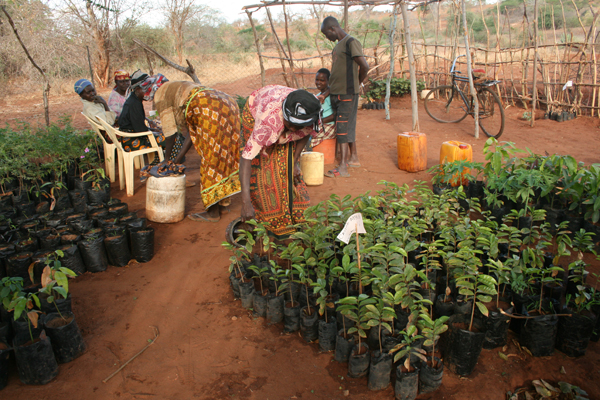HAW Hamburg receives over one million euros for climate and water research in Africa

Agriculture in Africa: The climate change in Africa will most likely further intensify the water problems FTZ-ALS
The AFRHINET project is the abbreviation of: “An ACP-EU Technology Transfer Network on Rainwater Harvesting Irrigation Management for Sustainable Dryland Agriculture, Food Security and Poverty Alleviation in Sub-Saharan Africa”. ACP stands for “African, Caribbean and Pacific Group of States”.
A contribution towards food security and poverty reduction shall also be provided within the framework of the AFRHINET programme. In concrete terms, in the next three years it shall be examined how Africa’s renewable fresh water resources – above all rainwater – can be utilised in a more optimal manner.
“We are concerned with establishing a more effective management of rainwater in Africa. In the process, the AFRHINET project will primarily create new competencies, strategies and an awareness of a more effective monitoring and management of rainwater. The aim is that people have more water available overall despite the same resource for their supply and agriculture. Only in this manner can life in some African regions be preserved at all,” says the study project manager, HAW professor and well-known climate researcher Prof. Dr. Dr. Walter Leal.
According to statements by Prof. Walter Leal, the climate change in Africa will most likely further intensify the water problems already existing there. Largely consistent computational models show a clear reduction of runoff volumes of rivers in North Africa and a slight increase in East Africa. “Nearly two-thirds of the African continent south of the Sahara has a semi-arid to arid climate”, says Prof. Leal. At the moment, nearly two-thirds of the surface of Sub-Saharan Africa is “arid or semi-arid”. Less than 1,000 cubic metres of water per year and person are available to more than 300 million people living there, i.e. they suffer from severe water shortage. Now the regional availability of water shall be improved through a more optimal utilisation of rainwater.
The AFRHINET project will examine the current situation in Ethiopia, Kenya, Mozambique and Zimbabwe, and test methods which can lead to an optimisation of rainwater utilisation, particularly in areas such as collection, storage and distribution. Health aspects will also be examined. Technology transfer centres shall be established in Hamburg, Addis Ababa, Maputo, Harare und Nairobi for this purpose.
Contacts:
Prof. Dr. (mult.) Dr. h.c. (mult.) Walter Leal, Head of FTZ-ALS and AFRHINET Project Coordinator
Tel. +49.40.428 75-6313
walter.leal@haw-hamburg.de
AFRHINET coordination team
Josep de la Trincheria/Johanna Vogt
afrhinet@ls.haw-hamburg.de
http://www.haw-hamburg.de/ftz-als.html
http://www.haw-hamburg.de/news-online-journal/newsdetails/artikel/eine-million-e…
Media Contact
All latest news from the category: Awards Funding
Newest articles

Self-Destructing Cancer Cells: Cutting-Edge RNA Breakthrough
Jülich scientists use novel RNA technology to selectively switch off tumours in the brain. An Adaptable Platform Technology That Destroys Glioblastoma Cancer Cells Using a special RNA molecule, a team…

Endurance Training: Transforming Lives of Heart Failure Patients
Can strength and endurance training be beneficial for patients with a certain form of heart failure? A research team from Greifswald investigated this question together with seven other research centers…

A Wake-Up Call for Mediterranean Shark Protection Against Extinction
Overfishing, illegal fishing and increasing marketing of shark meat pose significant threats to the more than 80 species of sharks and rays that inhabit the Mediterranean Sea, according to a…



